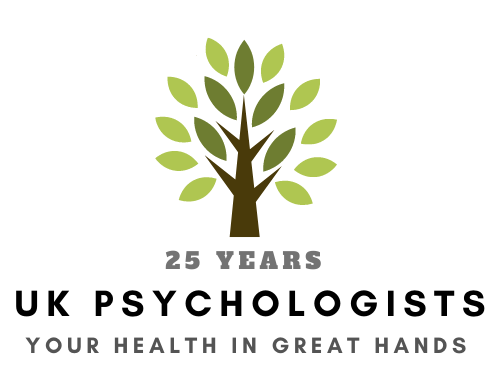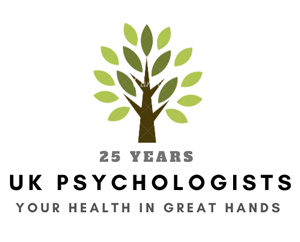Dr Siobhan McCarthy @ UKpsychologists.uk explains postnatal depression and her experience of treating this important depression.
Postnatal depression is experienced by between 10 to 15 women in every hundred. In addition, over 30,000 women a year suffer from birth trauma in the UK, so it’s high time we took a closer look at this often private and isolating experience.
Feeling depressed and unhappy following your baby’s birth can be highly distressing to a mother and her family, often at a time when it is expected she should the happiest she has ever felt. This contrast between expectations of happiness and often the reality can leave many feeling shame, guilt, self-loathing and fear. Where do you turn to when you don’t feel what everyone thinks you should feel? What if I am judged or I feel like a failure as a mother?
Over the years, I have worked with many women in this situation, and I have seen first-hand how isolating and frightening it can be. They may fear for their mental health; fear they are damaging their baby, or that they will never again return to the person they were before the baby was born. Many women find it hard to bond with their baby or indeed have any positive feelings about their baby. Conversely, they may feel nothing at all, experiencing feelings of isolation and detachment, all of which can be equally distressing.
There are monumental changes following the birth of a baby such as changes in your identity, sleep patterns, energy levels, independence, routine and body image, to name but a few. It’s therefore not surprising that mothers (and 10% of fathers) may find the experience disorientating, demoralising and overwhelming.

When do you see symptoms develop?
Post-natal Depression typically starts within a month or two of giving birth but can occur at any point in the following year after giving birth. About a third of women experience symptoms which start during pregnancy and which then continue after the birth. While it is not uncommon for most
women to experience what has been termed as the “baby blues”, postnatal depression can take on a more serious trajectory. Baby blues are unlikely to last more than a couple of weeks whereas postnatal depression can continue for months and, in some rarer cases, can continue much longer.
What are the symptoms of Post Natal Depression?
Key symptoms are a lack of enjoyment or interest in the world, irritability, tiredness, negative feelings towards your baby, trouble sleeping, wanting to withdraw from others, thoughts of hopelessness or self-harm or other more unusual thoughts or concerns that nobody else shares.
While some mothers may have a history of depression before they experience post-natal depression, many women have never experienced any form of depression before, so it can be a shock to experience after the birth of a long-awaited baby.

What causes post-natal depression?
In truth, there is rarely one single cause of post-natal depression. A mother can get post-natal depression after her first baby or after her fourth baby. There is little rhyme or reason to it. But one thing is for sure…IT IS NOT YOUR FAULT?
There are a few factors that seem to be more associated with the likelihood of getting post-natal depression, but these certainly don’t explain why you may be experiencing it now. For example, poor sleep, a conflictual or abusive relationship, lack of supportive relationships or social contact, major life events, birth trauma or bereavements, all can contribute to developing post-natal depression. But in many cases, it is hard to pinpoint what the exact causes may be. It can just happen, like any other illness.
What are the myths?
Postnatal depression does not mean you’re going mad. It does not mean you are a bad parent or that you will be damaging your child. If you need to take medication you will not become addicted to it. Professionals are there to help, not to remove your baby. Indeed, in some more severe and very rare cases, mother and child may be admitted together onto a mother and baby unit. In such cases, mother and baby stay and recover together in a supportive environment.
How long will it be until I’m back to normal?
Overcoming post-natal depression can take months and it requires a range of aspects to work through. For example, what is your sleep pattern like? Who is around to support you? Is there any abuse in the home? Was there a birth trauma? What do you expect from yourself after becoming a mother? Have you experienced any significant losses around the birth?
Becoming a mother can also affect how you viewed you own experience of being parented. It can bring up painful recollections of being a child that didn’t seem so significant before the birth of your baby. All these events and experiences need time to be worked through and resolved to allow you to recover.
What is helpful?
There are some things that can help. Certainly, having supportive social contacts, family and other mothers around you can be both preventative and healing. Having a baby can be very isolating and you can find yourself in a job that you may have had very little preparation or training for.
Try not to be super mummy or superwoman. Do less if you’re finding things overwhelming. Try to do one thing at a time or just one thing a day. Remember to do something in the day that reminds you of the person that you are. For example, make a phone call to a friend, go for walk with someone, have a bath or read a magazine when the baby is more settled. This will help you feel more connected with the person you are, not the person you may fear you have become.

Get professional help through your GP, health visitor or therapist. Talking things through can be a really important way to come to terms with the changes that have occurred around you and help you feel more supported. There are also medications that could be helpful in helping you through this period.
Try and rest when baby rests. It’s important to try and get as much sleep and rest as you can. It can be very tempting to try and get lots of tasks done when baby is asleep, but catching up on sleep can be more important in the long term. Allow others to help and ask for help. People can hold back because they don’t want to invade your space or undermine you, or they may simply be unsure how to help.
Make sure you’re getting regular exercise. This can improve your mental well-being as well as help keep you physically strong. Make sure you remember to self-care, eat regularly with nutritious food and go to bed at a regular time. Try and be compassionate and loving towards yourself. This is a really difficult time for you and remember that you don’t have to be a perfect parent. Nobody is a perfect parent! Practice kindness and understanding towards yourself. Try and imagine what you might say to somebody who feels the way you do, and practice treating yourself compassionately.
Finally, remember this period will pass and with the right treatment it will pass more quickly.
If the situation is deteriorating, get help sooner rather than later. There are professionals who understand and want to support you to recover so you can get on with enjoying your life and baby. If anything in this article resonates or you would like to find out more about getting help from a professional with expertise in this area, please call myself or my team at UKpsychologist.uk


